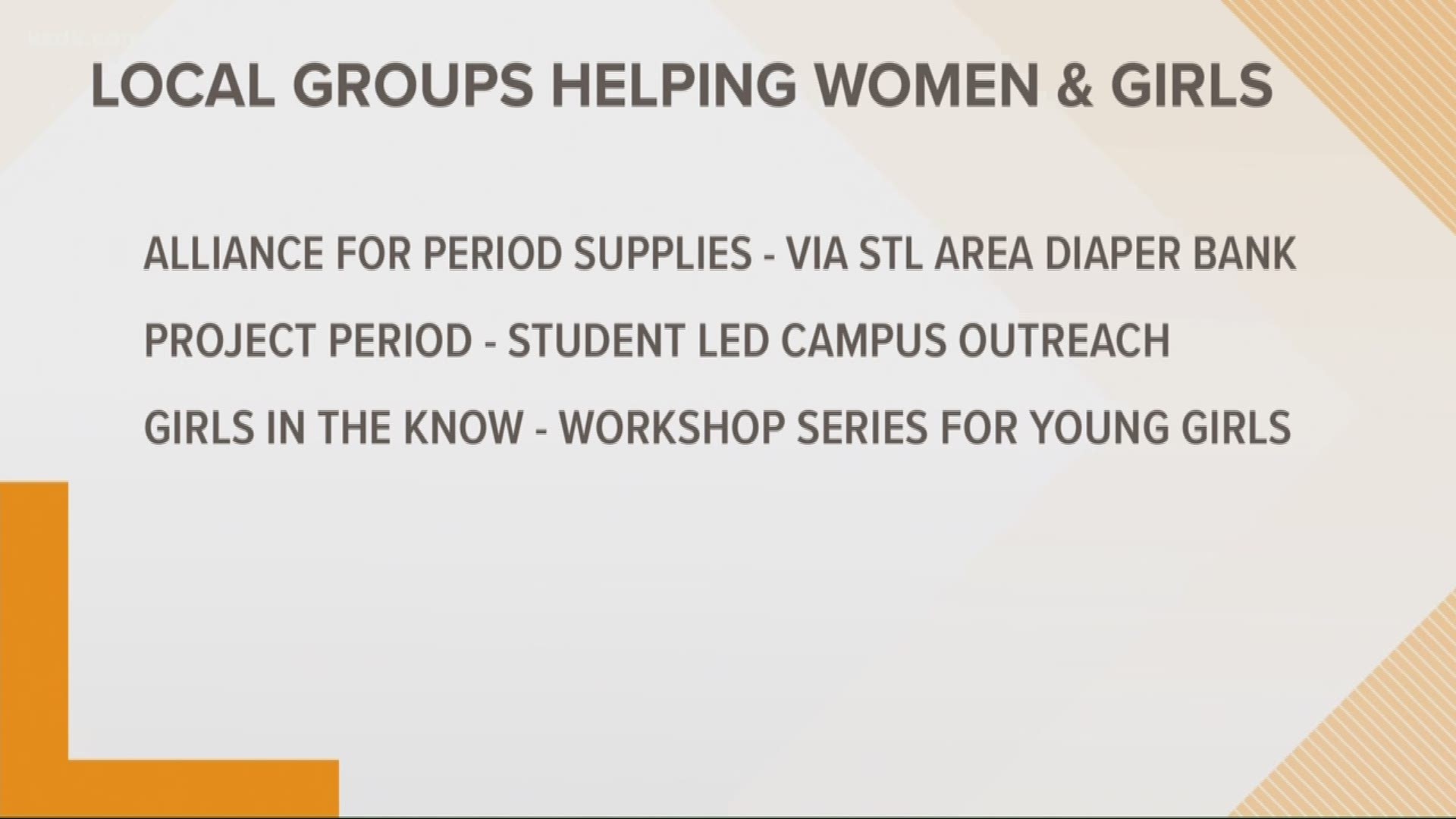ST. LOUIS — "People don't like talking about periods," admits Jessica Adams.
But she's not one of those people.
"Periods are the reason that literally everyone on earth exists, that's not embarrassing,” she said.
As a mother and the founder of the St. Louis Area Diaper Bank, she's well-versed in how basic hygiene supplies can make a huge difference in day-to-day life.
It's through that experience, along with groundbreaking research from St. Louis University indicating a huge need for period products among low-income women, that the St. Louis Alliance For Period Supplies was born.
"Not having the period products that you need, when you need them, is an affront to your basic sense of dignity," she said. "Being afraid that whatever substitute product you're using is going to cause you to have a leak or get your clothes dirty – what are you going to do if you're at work and can't leave? It's just horrifying, I think, the worry and fear that folks go through."
"If you're trying to work on big things like going to school or getting a better job or achieving financial independence or whatever it is...If you don't have period products and that is what is on your mind, you can't look ahead, you can't think bigger and accomplish those tasks that are like way up here if the foundational things you need for a better life are missing. It's a critically important issue.”
As the Alliance moves into a bigger space to begin distributing supplies, they're also working with schools to get pads, tampons, and clean underwear into nurses' offices. (They said there's a drastic need and providing clean underwear could help girls stay in school in case of a leak or unexpected period day.)
Along with the STLAPS, groups like Project Period at SLU and Girls In The Know are working to help women and girls of all ages feel confident and get through that "time of the month."
Meanwhile, advocates are lobbying a reduction in the so-called "pink tax" on feminine hygiene products, from about 4 percent to the lower rate placed on food, closer to 1 percent.
Illinois was among the first states to eliminate the tax.

